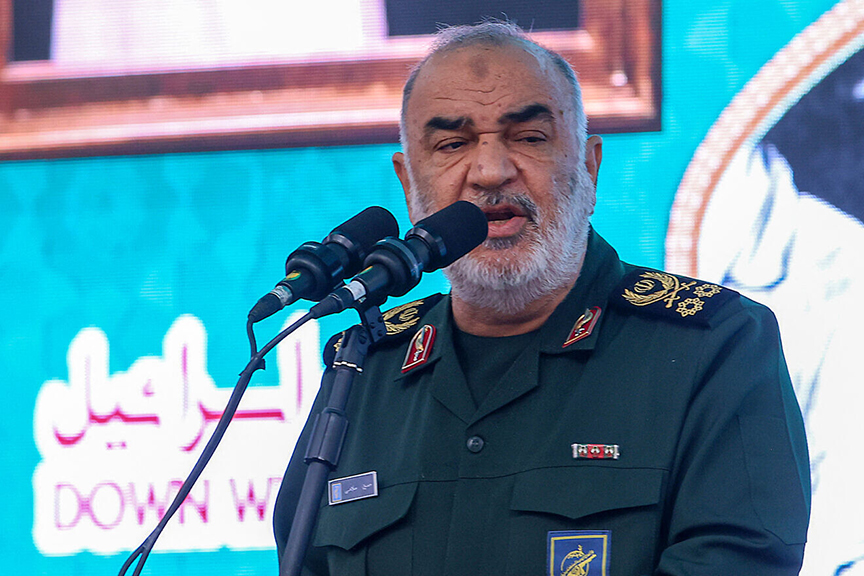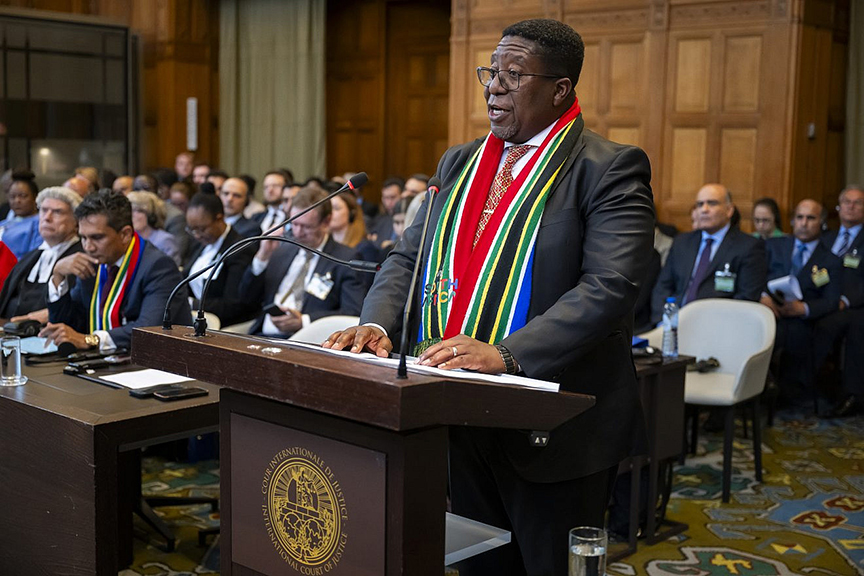IRGC: Israel to face massacre in ‘historic confrontation’ with Iran

The head of the Islamic Revolutionary Guard Corps, Hossein Salami, speaks during a rally outside the former U.S. embassy in Tehran on the 45th anniversary of the Iran hostage crisis, Nov. 3, 2024. Photo by Atta Kenare/AFP via Getty Images.
(JNS) — Maj. Gen. Hossein Salami, the commander of Iran’s Islamic Revolutionary Guard Corps, threatened a “real and historical confrontation” with Israel, speaking at a military drill in Tehran on Nov. 14,
“Infidels” will share the fate of the Jews massacred by the prophet Muhammad in 628 C.E., he warned.
“We are standing face to face, and we will fight with you until the end — we will not allow you to dominate the fate of Muslims,” the IRGC head vowed in an address translated by Iran’s Press TV propaganda outlet.
“Most modern armies of the world have come to the aid of the Zionist regime,” Salami said, slamming a “global formation of powers that intend to submit to their will so that they will rule over Muslims’ fate, occupy their land and rob them of their religious identity.
“We will take revenge. You will receive painful blows; keep waiting,” Salami told fellow IRGC members. “Study history; nowhere will you find a place where Muslims submit to infidels, polytheists and hypocrites.
“Look at Khaybar at the beginning of Islam — your fate today will be the same as the fate of the Battle of Khaybar,” continued the terrorist.
Salami’s remarks referred to a seventh-century confrontation between Muhammad’s forces and Jewish tribes in the Arabian Peninsula. After Muslim conquerors attacked and took control of the oasis of Khaybar, they massacred the men and sold their wives and children into slavery.
Israel believes that Iran has decided to postpone a third direct attack on the Jewish state following last week’s U.S. election, won by President-elect Donald Trump, Israel Hayom reported earlier on Nov. 14.
The Israeli report came a day after Iranian sources told Sky News that Trump’s impending return to the White House led the Tehran regime to delay the attack.
On Oct. 1, Iran fired more than 180 ballistic missiles at Israel, in the second-ever direct attack by Tehran against the Jewish state. The Israel Defense Forces, with assistance from the U.S., downed most of the missiles, with the sole casualty of the attack being a Palestinian man from Gaza who was struck by falling missile debris near Jericho.
In response, on Oct. 26, Israeli jets hit 20 sites in Iran in waves, reportedly knocking out air defenses and significantly setting back the country’s missile production industry. The Israeli strikes also destroyed radar systems required to guide the Islamic Republic’s ballistic missiles.
Initially, Tehran downplayed the impact of the strikes, though Supreme Leader Ayatollah Ali Khamenei reportedly told his associates later that the scope of Jerusalem’s retaliation was “too large to ignore.”



